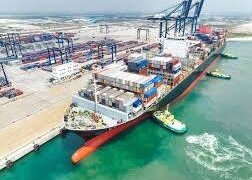The Food and Agriculture Organisation (FAO) of the United Nations has sounded the alarm on a looming food crisis in Nigeria, predicting that 33.1 million people will face hunger in 2025. This grim forecast is driven by a combination of factors, including inflation, climate change, and devastating floods.
In response to this impending crisis, the FAO has launched a proactive initiative to support vulnerable farmers in the North-East region. The organization has begun distributing farm inputs to 49,000 farmers, with the goal of enabling them to start dry season farming and improve their food security.
The FAO’s intervention is designed to support recently relocated communities and flood-affected areas, providing them with the necessary resources to recover and build resilience. Each household will receive essential inputs such as seeds, fertilizers, and solar-powered water pumps.
The organization’s efforts are focused on Adamawa State, where 9,800 households across six local governments will benefit directly from the intervention. The FAO is working in partnership with the Adamawa State Government, the Ministry of Agriculture and Natural Resources, and key stakeholders in the humanitarian and development sectors.
According to the FAO, the food insecurity situation in Nigeria remains challenging, with over 25 million people currently affected. The organization is urging the Nigerian government, donors, and stakeholders to commit resources and implement measures to avert a potential food and nutrition disaster.
The distribution of farm inputs is a critical step in supporting vulnerable farmers and improving food security in the region. By providing essential inputs and supporting dry season farming, the FAO is helping to reduce the risk of food insecurity and promote sustainable agricultural practices.
In addition to the distribution of farm inputs, the FAO is also providing training and technical support to farmers to help them improve their agricultural productivity and resilience. This comprehensive approach is designed to support the long-term recovery and development of vulnerable communities in the North-East region.
As the FAO continues to work with the Nigerian government and other stakeholders to address the looming food crisis, urgent action is needed to prevent a humanitarian disaster. The organization’s efforts to support vulnerable farmers and improve food security are a critical step in this direction.
FAO Warns of Looming Food Crisis in Nigeria, Distributes Farm Inputs to 49,000 Farmers
Roland Bayode
Roland Bayode is a Nigerian journalist with expertise in investigative reporting and editorial leadership. A graduate of Mass Communication, he served as Editor-in-Chief of Echo Media at Adekunle Ajasin University and was the top intern at Premium Times Center for Investigative Journalism (PTCIJ) at Owena Press, The Hope Newspaper in Akure. Roland has contributed to News Round the Clock, PTCIJ Google-YIAGA LightRay Media, Apex Sport (U.S.), and served as Associate Editor for Nigeria Grassroot News under AFYMP.
Leave a Reply Cancel reply
NATIONS NEWS
POLITICS
YOUR ECONOMY
E & P
EPL: Three managers shortlisted to replace Guardiola at Man City
Former Real Madrid manager, Xabi Alonso, has joined Manchester City’s three-man shortlist of managers to replace Pep Guardiola. According to...
YOUR THOUGHT & HISTORY
Who we are

Welcome to Umpire News, your go-to online newspaper dedicated to broadening perspectives and expanding the horizons of our numerous readers. Read more
Browse by Category
Recent News
Come out and vote — Gov Fubara calls for participation in by-elections
Northern region not marginalised – Former FCT Minister, Modibbo
© 2024 Copyright Umpirenews. All rights reserved





































